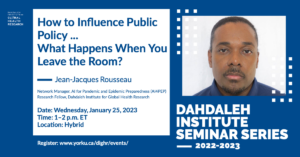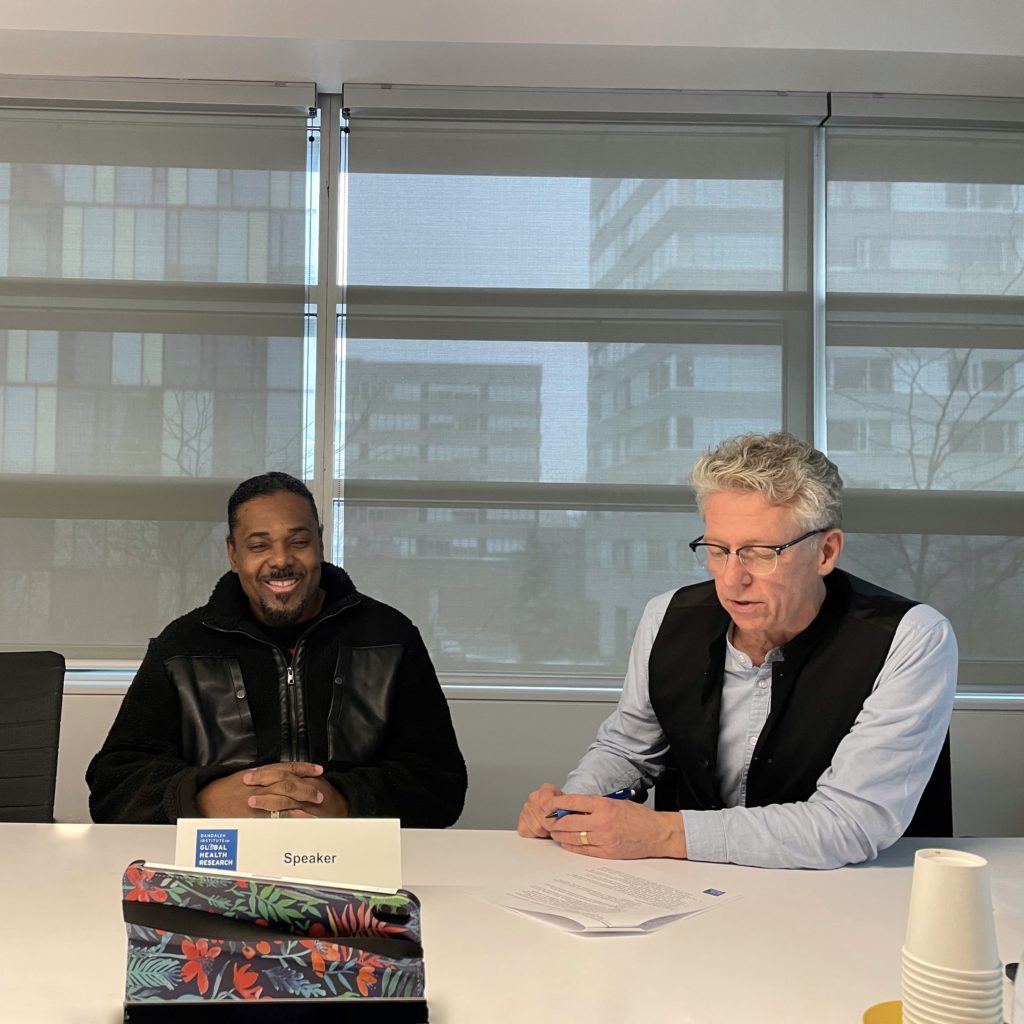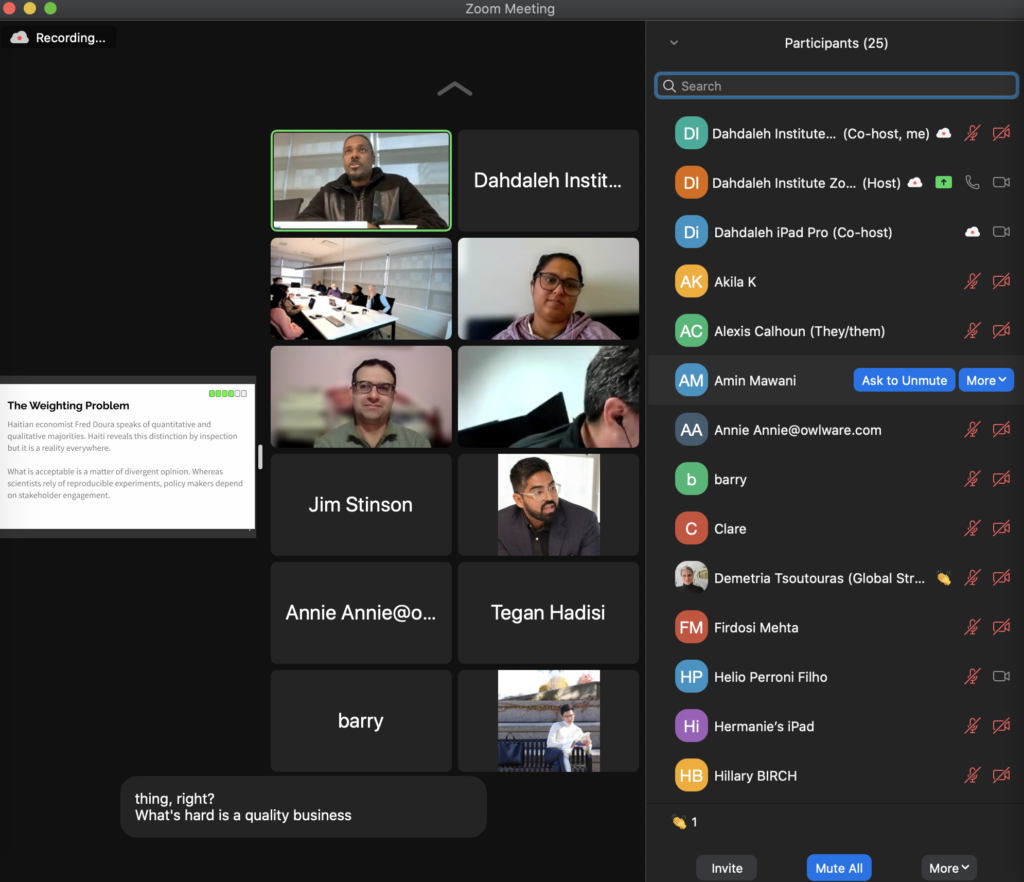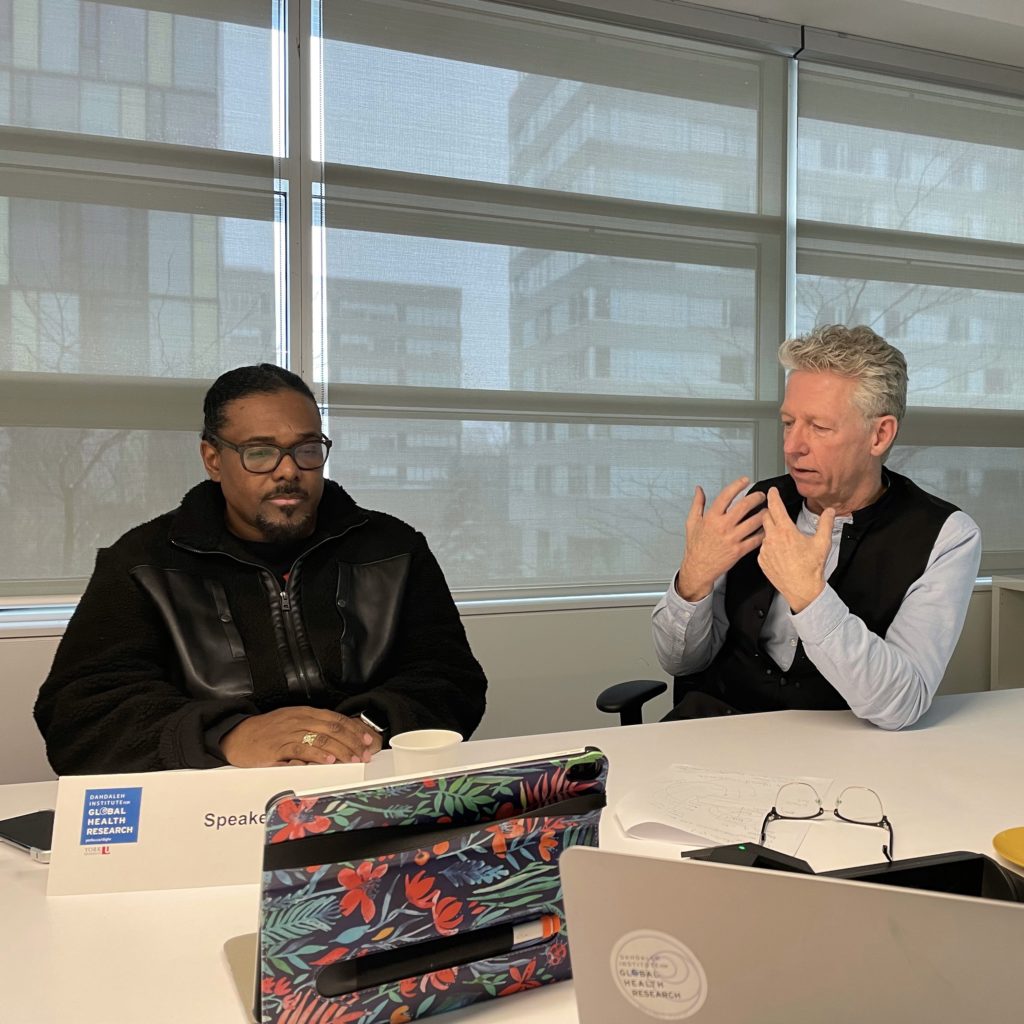Post
Published on February 8, 2023

On January 25, Dr. Jean-Jacques Rousseau used his broad experiences in government in Canada and abroad to comment on instances when scientific and technical advice fails to have a positive influence on public policy: "Science is necessary but not sufficient for positive public policy impacts". For him, the winning combination is science and a deep understanding of the context in which policies are deployed. Therefore, the onus is on experts to close the gap between technical solutions and the audiences that will be subject to their effects.
To illustrate the point, Dr. Rousseau introduced the distinction between quantitative and qualitative majorities by Haitian Canadian economist Fred Doura. The target of a policy cannot be assessed simply by counting. This is the weighing problem. He specified, "what is acceptable is a matter of divergent opinion. Whereas scientists rely of reproducible experiments, policy makers depend on stakeholder engagement". Technical experts that want to influence policy makers must also engage with that thinking. The talk ended with reflections on how his time as advisor in Haiti helped improve his ability to understand policy impacts in Canada.
Watch the seminar presentation below:
Themes | Global Health & Humanitarianism, Global Health Foresighting |
Status | Active |
Related Work |
N/A
|
Updates |
N/A
|
People |
You may also be interested in...
Recap — Leveraging Systems Thinking for Effective Global Health Policies, with Tarra Penney
On October 30, Dahdaleh faculty fellow Dr. Tarra Penney presented on systems-based approach and how it can transform traditional methods of public health intervention. Her work seeks to address complex global health challenges by understanding ...Read more about this Post
Internship Program: 2021-2022 Year In Review
The Dahdaleh Institute worked with exceptional students this year through our Internship Program, which is founded in an experiential education approach. Students completed program practicums with us, were hired through the Research at York program, ...Read more about this Post
Recap — Navigating Your Life’s Work: An Inspired Conversation, with Don Simpson
On Wednesday, January 29, Dahdaleh senior fellow Don Simpson led an engaging and reflective conversation on preparing for one’s real life’s work. Moderated by Dahdaleh senior fellow Harvey Skinner, the session was a back-and-forth discussion, ...Read more about this Post



